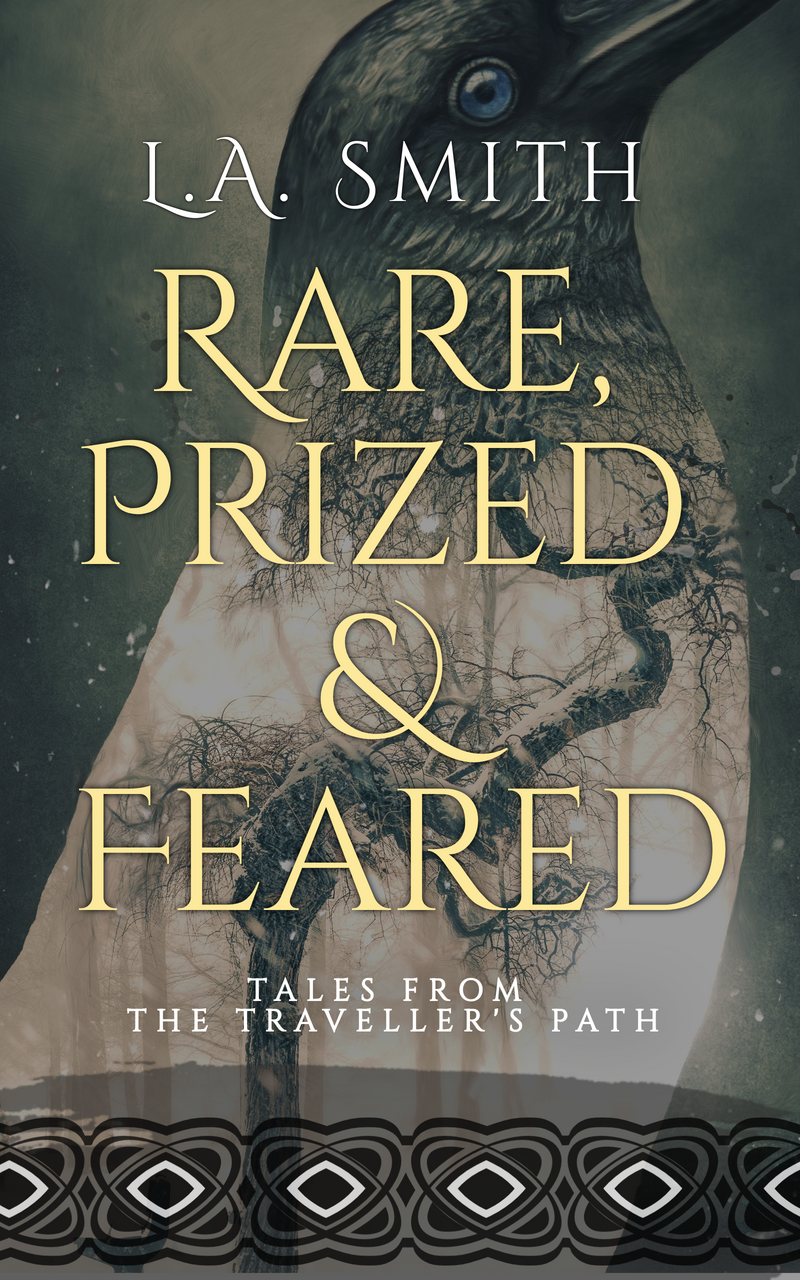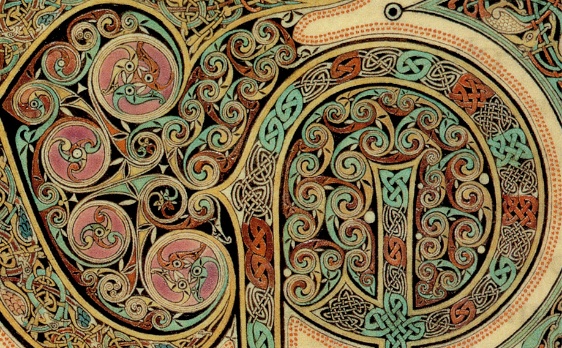
Newsletter
Yes! Send me my FREE short story collection and sign me up for those exclusive subscriber goodies!
We value your privacy, and will never spam you! View our privacy policy at lasmithwriter.com/privacy

Yes! Send me my FREE short story collection and sign me up for those exclusive subscriber goodies!
We value your privacy, and will never spam you! View our privacy policy at lasmithwriter.com/privacy
I’ve been wanting to clarify something for some time. I use the term “Dark Ages” to describe the era in which my historical fantasy trilogy is set, as it gives me a short-hand way of identifying the setting. It’s perhaps a little more understandable than “7th century Northumbria”….but perhaps not.
The problem lies with the term, “Dark Ages”, which refers to that period from the 5th to the 10th century between the fall of Rome and the rise of medieval Europe.* For most people this conjures up a certain picture of a time when Rome’s mighty grip loosened as the Empire gradually collapsed, when there was lots of wars, when people scrabbled for existence in the dirt, when all the knowledge gained during the classical and Roman eras was wiped out, when education was non-existent and when people’s lives were described perhaps the best by Thomas Hobbes:
To be fair, I must confess this was close to how I thought of the Dark Ages as well when I started research for my book. However, the more I researched, the more I came to understand that life in the so-called Dark Ages wasn’t quite exactly as I had imagined it. I’ll give you some idea of what I mean, using Northumbria in the 7th century as an example, as that is the place I am most familiar with.
Wars – well, yes, there were violent skirmishes and conflicts, starting with the invasion of the Anglo-Saxon tribes after Rome’s armies pulled out (although technically they were first invited in, as a sort of mercenary army to keep the native Britons under control after the legions left) which resulted in wars between them and the native Britons (both the Romano-Britons that were left behind and the British tribes), innumerable cattle-thieving and skirmishes between the Celtic tribes as well as outright war between themselves and against the Picts. And the Anglic and Saxon kings (Angles in the north of Britain, Saxon in the south) fought against each other, to be sure, but really, these kings were just as much farmers as they were warriors. Yes, they would go on yearly rounds of their kingdoms exacting tribute from their people (an early form of taxation!) and they could only hang on to their thrones through showing their prowess at warfare, which enabled them to lavish booty upon their thegns and ealdormen, but most of the time they were making sure the crops were planted, the roads kept safe, the bridges maintained, and that the kingdom was in order. The coerls would do most of the work, granted, but the kings had to spend a fair amount of time doing these mundane jobs too.

Warrior’s helmet from the Sutton Hoo ship-burial, early 7th century. Possibly belonging to Ræwald, King of East Anglia. Not the greatest picture, but this is a special one for me because it’s one I actually took. Yes, I saw it in person at the British Museum. Wow.
2. Education – it would be wrong to think that the people of this era had no opportunities for education. In fact, Britain’s first schools were established during this period, at the monasteries. They were developed in order to train priests for the work of the church, but girls who were destined to be nuns and other children of some of the higher class families would have had the opportunity to attend as well, and in some cases along with their parents. And you will probably be surprised at what was taught at these schools. The first order of business was to teach Latin, as the church liturgy was mainly in this language, but as the students gained competence in it, other subjects were added. Some of the poets of late Antiquity, as well as some of the classical poets like Virgil, formed the basis of the trivium: grammar, rhetoric (the art of effective and persuasive speaking and writing), and dialectic (a method of examining and discussing opposing ideas in order to find the truth). Some scientific subjects, the quadrivium (arithmetic, geometry, astronomy, and harmony/musical theory) were also studied. And don’t be fooled into thinking that what they were learning in the area of the sciences was wrong. For example, Bede was well aware that the earth was round, that the length of the solar year was not a whole number of days (in other words, not exactly 365 days every year, hence why we have a Leap Year, in order to catch up), and that one could predict things like eclipses, comets, solstices, and equinoxes. Could everyone read and write? No, which has been true for almost every era until our modern times (not even true everywhere around the world today). Did everyone have access to education? No, the schools were pretty sparsely populated, but they were there, and those that attended actually got a pretty good education, if you could make it through the floggings for not doing your work. Heh.
3. Arts and culture – the idea that the people of this era had no appreciation for, nor the skills to make, beautiful things is pretty easily dismissed. Just have a look at these:

The Battersea Shield (bronze and enamel, a Celtic shield that dates from the early first century, so not exactly Dark Ages era, but you get the point. It wasn’t only the Saxons who made beautiful things! This was fished out of the Thames in 1857.

The beautiful Lindisfarne Gospels, from approx. 760 AD. A detail from the second initial page from St. Matthew’s Gospel.
4. Short, brutish lives – there is an idea that people during the Dark Ages pretty much died when they reached 40 years old or so. This is not technically true. It is true that the average life expectancy was around 35, but the key word there is average. The number is skewed lower than ours because of the very high rate of infant mortality. Between one-third to one-half of children died as infants. But if you survived those first perilous years, you actually had a pretty good chance of leading a fairly long life, as long as you weren’t a warrior, which of course tended to cut your years short. There was medical knowledge available to deal with injuries and sickness, but of course, some of that was a bit hit and miss. Infections were a huge problem after an injury, even a non-fatal wound would often end up killing the person. However, there is forensic evidence from skeletons of set bones and some crude but effective surgery being performed. It’s hard to believe, but there is even evidence that a form of brain surgery, called trepanning, was practiced. This involved drilling a hole into the skull and exposing the dura mater of the brain, to relieve pressure from swelling, release pooled blood, or clear our bone fragments after a skull fracture. Even more surprising is that the evidence from the skeletons shows that many survived this procedure.
I could go on about this, but I hope you get the point. This era was not a Black Hole into which all civility, culture, and learning fell, only to emerge again during the 11th century.
It was actually a really interesting time to write about, I hope that once my book is published (thinking positive here!) you will enjoy reading about it too!
If you want more information on this, check out this link (warning, the language is a little “salty” at times but they’ve done their research well): 5 Myths You Probably Believe About the Dark Ages
*And to be clear, this term Dark Ages really only refers to European history. The Arab world would see this time as one of their greatest eras.
** Hobbes actually wasn’t writing about life in the Dark Ages in this quote. This is his idea of what life would be like without any political community or government.